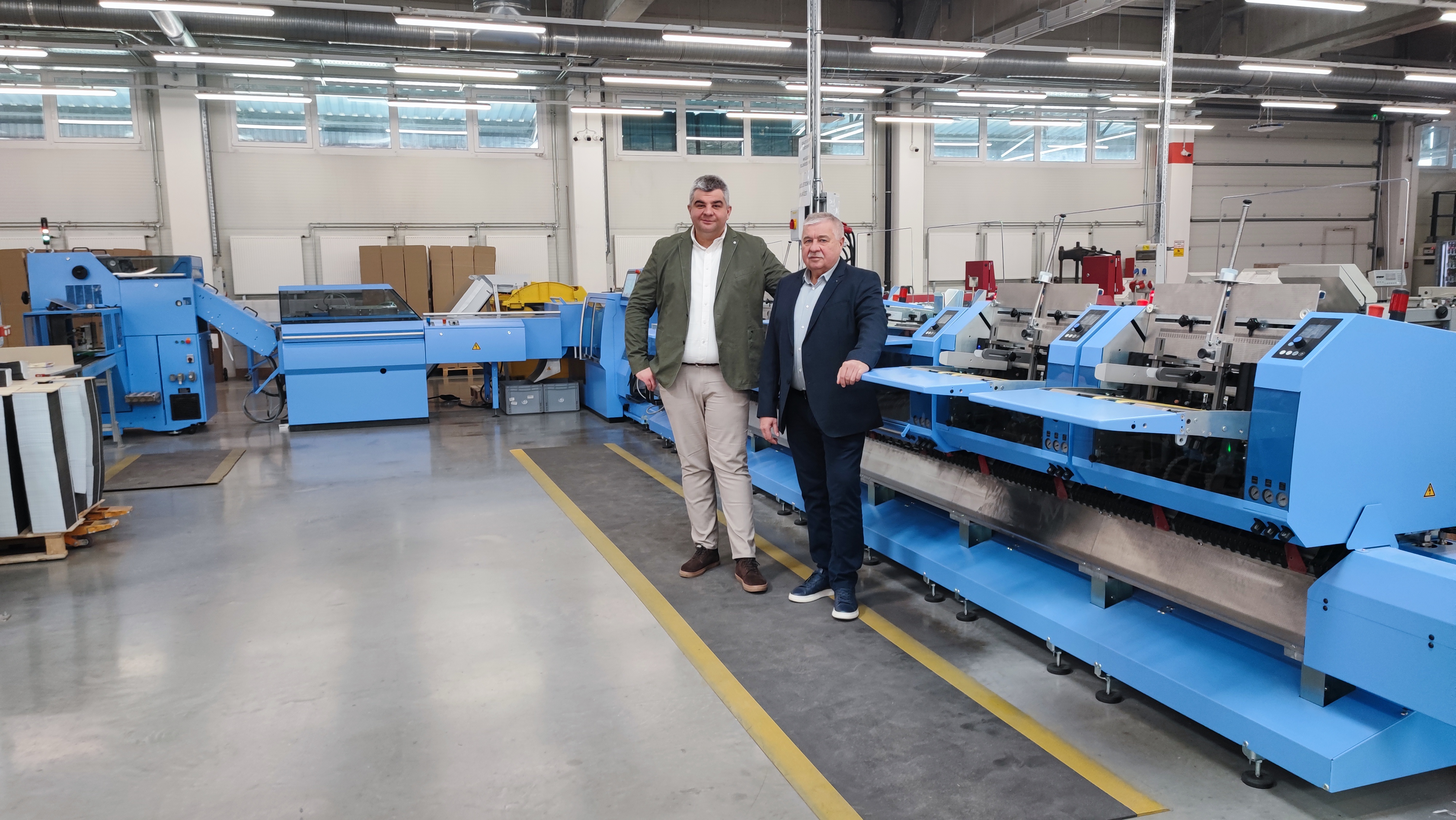Two Saddle Stitchers become one Primera PRO
The Hungarian company Signal Print completely reorganised its saddle stitching operations in autumn 2024. A Primera PRO from Muller Martini has replaced two ageing Hohner systems thanks to its high net output and fast changeover times.
The company was founded in 1998 and has enjoyed extremely dynamic growth over the years. Signal Print currently employs 170 people. In addition to the pure printing division, the company has built up a strong fulfilment and logistics department in order to grow with the demands of the market. ‘Printing alone is no longer enough today,’ emphasises Company Director Máté Pető. This combination enables Signal Print to offer complex services that are valued by local and international players alike. The reference list includes names such as Samsung, Jabil, Flex, DS Smith, Electrolux and many more.
 For Máté Pető (left) and Mr Balázs Pető, the expected increase in productivity with the Primera PRO saddle stitcher from Muller Martini has been fully confirmed in practice.
For Máté Pető (left) and Mr Balázs Pető, the expected increase in productivity with the Primera PRO saddle stitcher from Muller Martini has been fully confirmed in practice.
Signal Print invests heavily in the training of its employees and at the same time provides them with modern and innovative tools. The company pursues this philosophy across the entire value chain. In saddle stitching in particular, production was previously slowed down due to the long set-up times and the resulting low efficiency. Signal Print believes that the
Primera PRO is now the right answer to sustainably increase productivity in saddle stitching. The maximum output is 14,000 cycles per hour. The Primera PRO has an intuitive operating concept and a high degree of automation to maximise the limit in daily practice.
Thanks to its wide range of products, Signal Print has acquired a true all-rounder in the Primera PRO, which can process both short and long runs economically. The switch to saddle stitching technology from Muller Martini is favoured by simple user guidance. The reduction to one saddle stitcher will result in lower personnel costs in future and also significantly reduce service costs. The installation already took place in autumn 2024 and in the first few months after commissioning, the performance and quality of saddle stitching was already increased, assures Máté Pető.